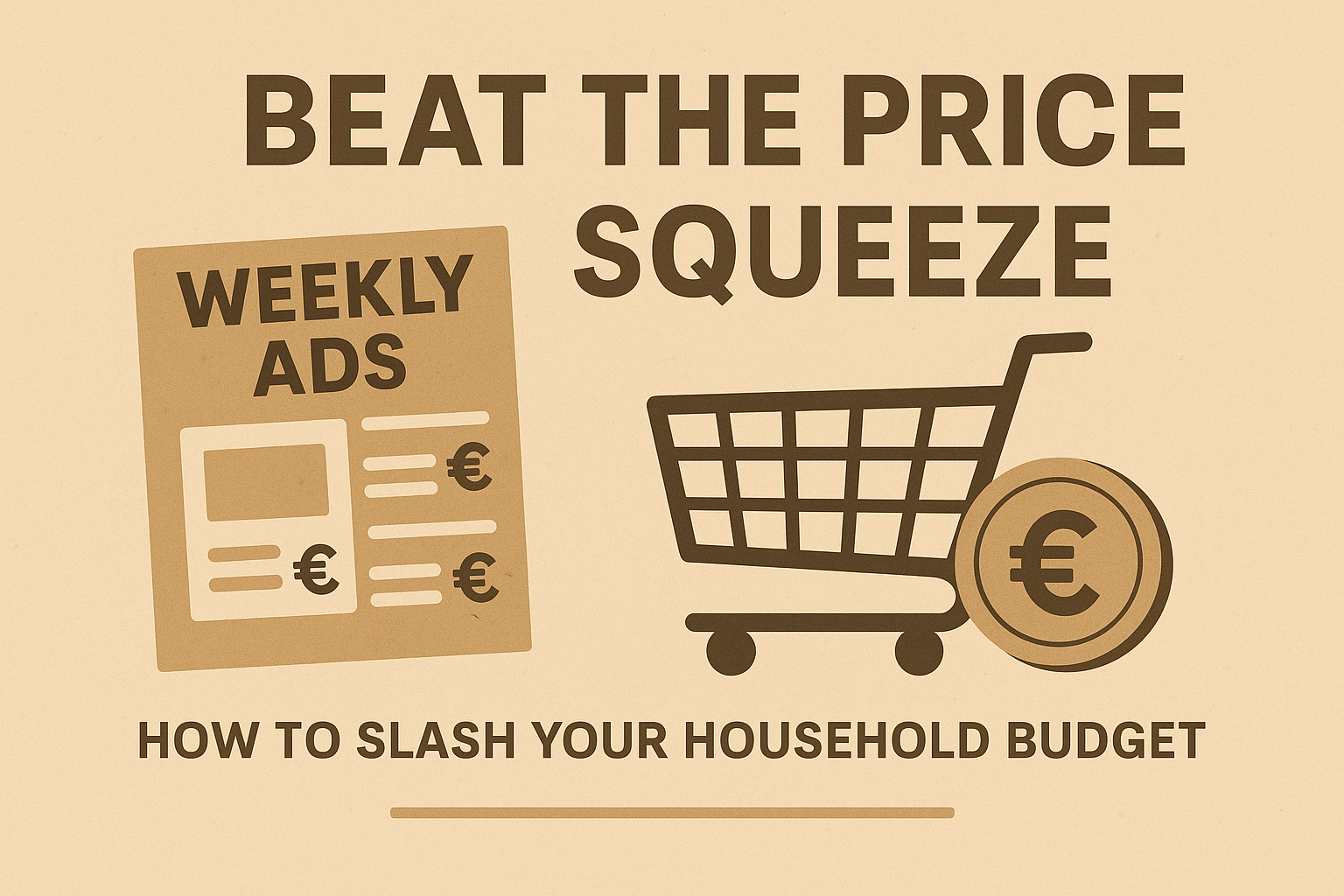How Smart Use of Weekly Ads Can Slash Your European Household Budget in 2025
You don’t need to hear another headline. You feel it every week—groceries cost more, energy bills creep up, and your euros stretch thinner.

You don’t need to hear another headline.
You feel it every week—groceries cost more, energy bills creep up, and your euros stretch thinner.
The cost-of-living crisis in Europe isn’t abstract anymore. It’s in your cart.
But here’s the shift: the savviest households aren’t just cutting back.
They’re using data—specifically, weekly ads and digital flyers—to buy smart, not less.
Why Weekly Ads Are Your Underrated Budgeting Superpower

Most people scroll right past them. That’s a mistake.
Because digital flyers aren’t just promotions. They’re timely, geo-targeted price maps.
Used right, they help you:
- Cut monthly grocery costs by 15–25%
- Plan meals around actual discounts—not guesswork
- Spot pricing trends before inflation hits
Hypothetical Shopping Basket: The Power of Precision
Let’s compare two households shopping in the same week:
Without Flyers:
- Bread (€2.40)
- Milk (€1.45)
- Eggs (€3.30)
- Laundry Detergent (€7.99)
- Chicken Breast (€9.80/kg)
- Total: €24.94
With Digital Flyers (Same Week):
- Bread (Promo at €1.60)
- Milk (2-for-€2 deal)
- Eggs (Private-label brand €2.50)
- Laundry Detergent (Buy 1 get 1 free on €6.99)
- Chicken Breast (Local butcher promo €7.90/kg)
- Total: €20.10
That’s a €4.84 savings—from just one basket.
Now scale that to:
- 4 weekly shops
- Multiple categories (cleaning, personal care, snacks, pet food)
You’re now looking at €80–100/month in savings. Just from smarter timing.
How to Use Weekly Ads Strategically
1. Set Region-Specific Alerts
Your platform should allow you to:
- Pick your favorite stores
- Filter by product category
- Set reminders when new flyers drop (usually mid-week)
Miss the drop? Miss the deal.
2. Shop Your Plan, Not Your Cravings
Build your weekly shopping list after reviewing the flyers, not before.
- If pasta sauces are on sale? Swap out your curry plan.
- If yogurt deals beat cheese? Rethink your breakfast routine.
Meal planning around deals doesn’t mean boring—it means flexibility with purpose.
3. Bundle Timing with Bulk Buying
- Rice, beans, canned goods, toilet paper: buy when discounted in bulk
- Meat and produce: batch cook and freeze based on flyer cycles
- Snacks & drinks: watch for end-of-month promos tied to sales quotas
If you see a product at its 90-day low, grab double.
4. Extend Beyond Groceries: Household + Finance
Smart platforms list more than food.
Look for:
- Pet care discounts
- Cleaning supplies bundles
- Seasonal utility promos or broadband offers
- Even insurance or credit card cashback deals
These aren’t gimmicks. They’re legitimate offers if you vet the terms.
Real-World Tip: Flyer-Based Meal Planning Template
Here's a simple model:
| Flyer Deal | Ingredient | Meal Idea |
|---|---|---|
| Chicken thighs – €6.99/kg | Protein | Sheet pan chicken & veg |
| Broccoli – 2-for-€3 | Veg | Stir fry & omelets |
| Pasta – €0.99 | Carb | Pasta salad |
| Greek Yogurt – €1.20/tub | Breakfast | Parfait w/ fruit compote |
| Apples – €1.89/kg | Snack/Dessert | Baked apples or smoothies |
Total cost: ~€18 for 3 meals + snacks for two days.
Rinse. Repeat.
Final Thought: Inflation Is Real. But So Is Your Power to Push Back.
You can’t control energy rates.
You can’t stop global shipping delays.
But you can choose how, when, and where you spend your money.
Weekly ads aren’t old-school. In 2025, they’re your digital price radar.
And when used right, they’re one of the most powerful tools in your household budget arsenal.
FAQs
How much can I realistically save with weekly ads?
With consistent use, expect to cut 15–25% from grocery and household bills monthly.
Is flyer-based planning time-consuming?
No—if you use a smart platform with filters, alerts, and local targeting.
Can this work for large families or specific diets?
Absolutely. In fact, bulk-friendly families and flexible meal planners benefit the most.